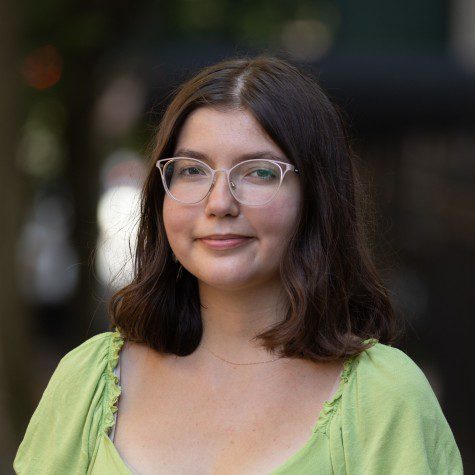Content warning: This article mentions abortion while reviewing scenes from the movie.
For a while, it seemed like this awards season was going to be unique. Many predicted that, as large studios held off on releasing their films until theaters reopened, award nominations usually reserved for big-budget blockbusters would suddenly become available to independent films. Those predictions were dashed as studios moved to streaming services to release their films and the Academy postponed the Oscars. This development means that truly great independent films such as “Never Rarely Sometimes Always,” will not get the praise or attention it deserves.
The third feature by writer-director Eliza Hittman (“Beach Rats,” It Felt Like Love”), “Never Rarely Sometimes Always” follows Autumn (newcomer Sidney Flanigan), a pregnant teenager from Pennsylvania who struggles to find local resources to get an abortion. With the help of her cousin Skylar (fellow newcomer Talia Ryder), the two embark on a journey from their small western Pennsylvania town to New York in search of an abortion clinic. Despite the interactions that Autumn and Skylar have with social workers and creepy men, the movie devotes the most time to these two characters braving new territory together.
Intentionally stripped-down and naturalistic in its style, the story follows a lifelike structure that happens to satisfy narrative expectations. French cinematographer Hélène Louvart’s handheld camerawork immerses viewers into the sense of chaos familiar to many New York City newcomers. In one scene, the camerawork is aided by some great sound design in which the sounds and people of the subway sneak up on and overwhelm the soundscape. When they’re not using public transit, Autumn and Skylar wander the city that never sleeps, draining our protagonists of energy as they repeatedly prolong their trip.
Appropriately, the film’s quietest scenes are those in Planned Parenthood. Having escaped the distractions and barriers in the way of her abortion, Autumn gets closer to finding peace in these rooms with the social workers trying to help her. The film’s most delicate moments take place within these walls as well. In the film’s titular scene, Autumn answers a series of questions (as asked by a real-life social worker), captured in one shot. The heart-wrenching scene showcases the power of Flanigan’s performance and Hittman’s direction.
Hittman’s approach is rather hands-off. The film doesn’t go out of its way to convince the viewer that abortion is good. The protagonist’s main goal presents the film’s progressive stance, and the girls’ journey makes an empathetic case for easier access to abortion resources for all.
The film also criticizes the male gaze. From the beginning of the story, Autumn and Skylar are constantly subjected to men who think they can have their way with them. Autumn is heckled during a talent show. Her boss watches the two of them through a one-way window. A stranger forces Skylar to make out with him in exchange for funds for tickets. Yet their journey becomes an act of perseverance and rebellion, not stopping to appease these men who wish to control them.
Instead, these women find solidarity with each other. Captured in one shot, as Autumn receives the first part of her abortion, the shot tracks left from her feet to her hand above her head, held by the social worker who just questioned her, standing by Autumn’s side. The act mirrors when Autumn finds Skylar being pressured into making out with the boy they met on the bus. Autumn sneaks her hand to Skylar, who instantly recognizes her, taking her pinky to brave the hardship together.
Email Sebastian Lufelt at [email protected].
























































































































































